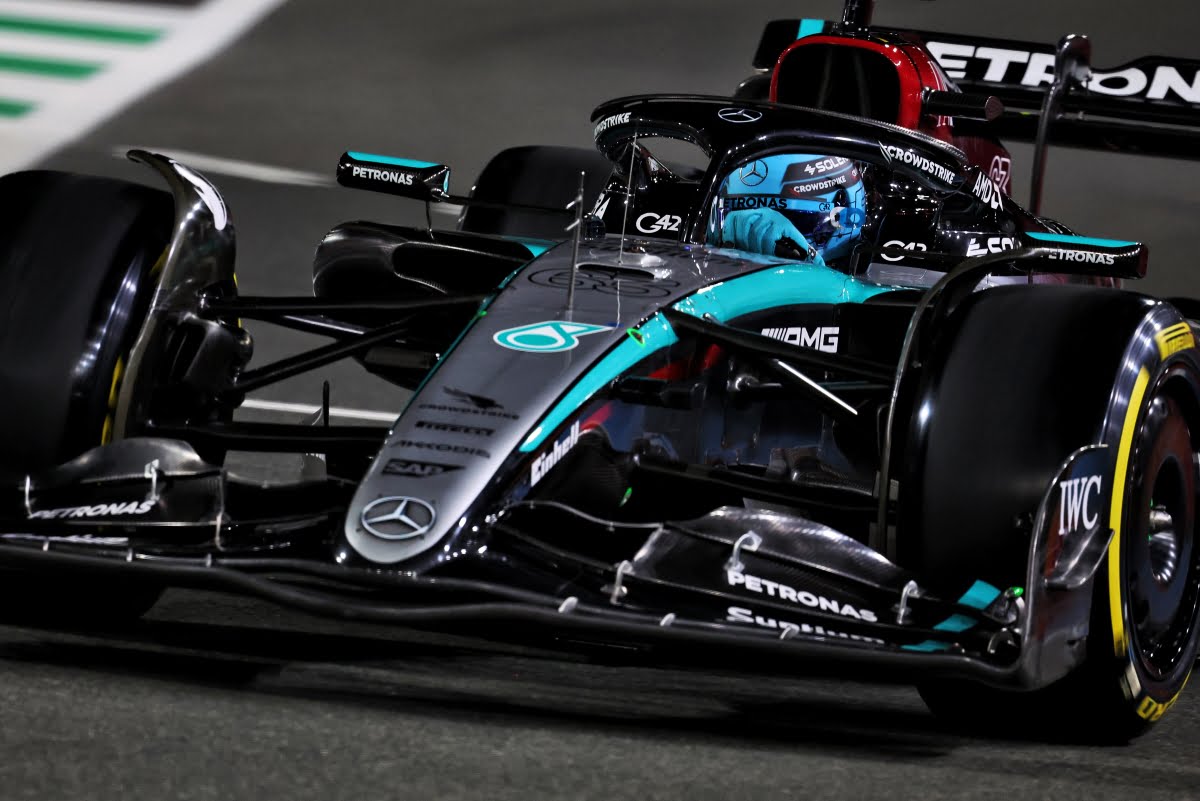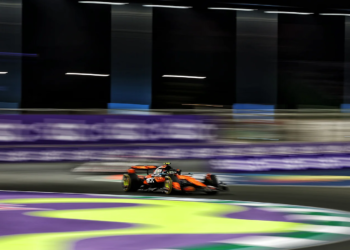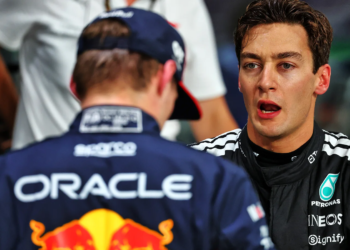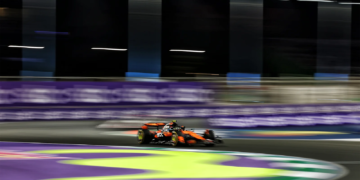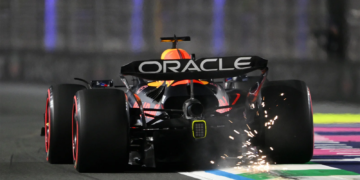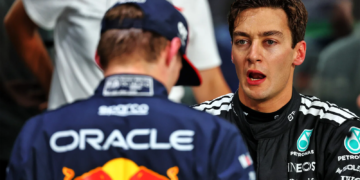George Russell has said that Mercedes’ 2024 Formula 1 car is “clouting the ground” at high speed in Saudi Arabia, contributing to his costly error late in qualifying.
The Briton had been classified inside the top four in each of the three practice sessions in Jeddah, including as high as second in the representative twilight FP2 hour.
Russell was situated in fourth after the opening runs in the final segment but made a mistake on his final run on fresh rubber that saw him drop down to seventh place.
Having failed to replicate an encouraging practice showing, Russell asserts Mercedes must strive to understand the reasons behind its regression come crunch time.
“It was a real shame,” Russell reflected. “My first lap on the used tyre was really strong.
“I fell really strong this weekend and put the new tyre on two-tenths up by Turn 9 and then just lost it at Turn 10. So I think P4 was the true potential of the car today.
“But we’re still trying to find the sweet spot because we saw in Bahrain FP2, we had P1 and P2. Yesterday we were really strong, P2 and P4 or P3, and today we took a step backwards and arguably in Bahrain we did the same. So we just need to try and find why that is and dial it in.”
Russell’s team-mate Lewis Hamilton had been struggling all weekend with the rear end of his car and opted to trial a more loaded rear wing in the final practice session.
However, Russell contends that such alterations are not to blame for Mercedes’ troubles, citing how bouncing had been a problem that impacted him across qualifying.
Asked whether there were set-up direction changes overnight, Russell retorted: “No, we’ve been doing a lot of testing I think. We need to look into the data.
“I think the track evolves, you go quickly through the corners. The car gets closer to the ground, bouncing probably increases. And that was my problem in qualifying today.
“I couldn’t get through the high speed without clouting the ground. And that’s why I lost it at Turn 10. I turned in, the car hit the ground, and I went off. Because I was going through the corner maybe 10 kph quicker than I’ve done at any other time this weekend. So that’s the balance. And maybe we need to forward think a little bit more.”
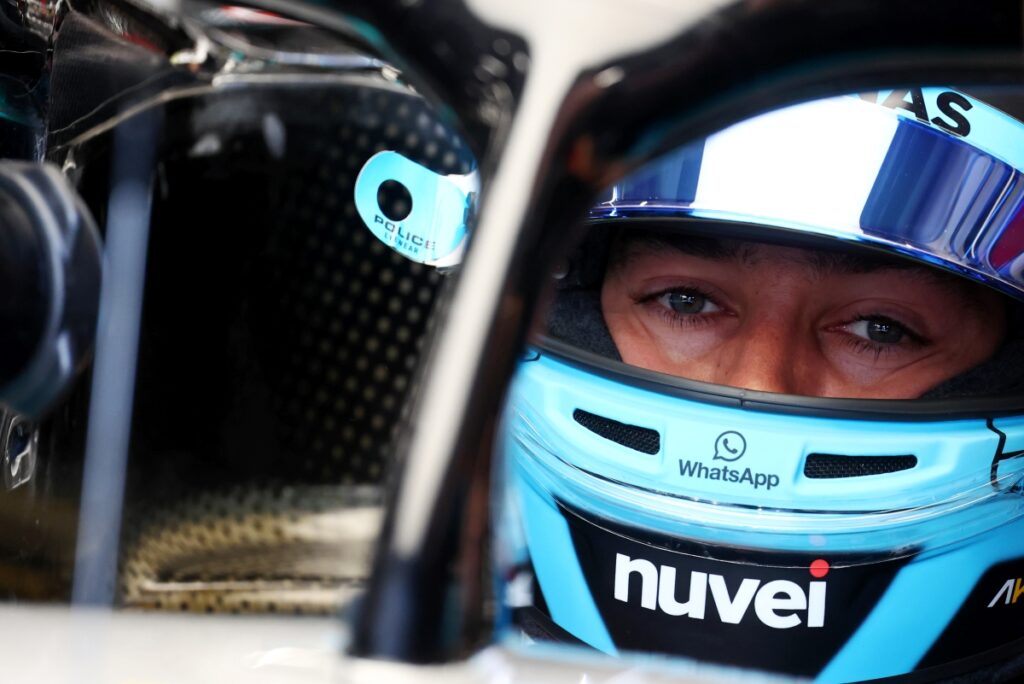
Mercedes had been one of the teams most limited with the unforeseen porpoising phenomenon when the current ground effect cars were introduced back in 2022.
Russell has admitted Mercedes might have to sacrifice running its revamped car close to the ground in the pursuit of performance to obtain a more compliant base.
“I think we’re learning about the car and perhaps we just need to find a better compromise,” he added.
“We’re chasing the downforce but perhaps the downforce isn’t worth the losses that the bouncing brings.
“As I said, we’ve shown really strong pace at points. We went out in FP1 yesterday and we were quickest on the Hard tyre straight from the get-go and then it seemingly got slower.
“Bahrain we were really quick on Friday and then Saturday we seem to have got slower. We still need to get on top of it and as I said, maybe we just need to strike a different compromise.”
Russell is optimistic that Mercedes’ race pace is stronger and is convinced that the German marque can overhaul Fernando Alonso’s Aston Martin and the McLarens.
However, the ex-Williams driver is mindful that the increased turbulence when following another car this term could thwart Mercedes’ hopes of fighting through the field.
“Well, our race pace is looking strong,” he assessed. “The only challenge here in Jeddah is it’s not an easy track to overtake. Even though you’ve got the three DRS zones, you can’t really overtake into [Turn] 22. And now it seems harder to follow. And with an easy one-stop race, you don’t see much tyre delta between drivers.
“So, you know, time will tell. I’m confident we’ll be quicker than McLaren and Aston. We’ve got a really good straight-line speed, which we’ve not said for two years.
“But I don’t think it’ll be straightforward to go forward.”
Russell is certain that Mercedes won’t endure a repeat of the engine cooling concerns that cost him and his team-mate up to four-tenths a lap in the Bahrain Grand Prix.
Questioned on if he was worried about that materialising again, Russell answered: “No, not at all. We found the problem. It was a very simple issue.
“It was a simple solution, but we’re still trying to find why the problem was so severe in Bahrain. But as I said, we found the cause. We just don’t know why it had the impact it did.”

